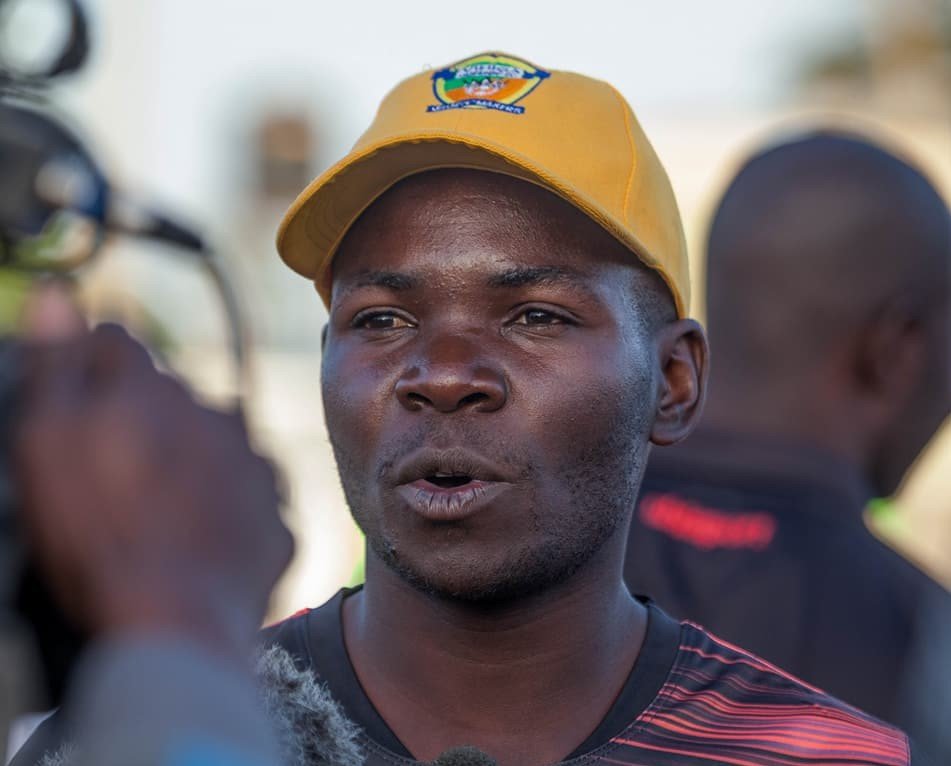By Agnes Amondi,
With over 15 years of coaching experience in football, Alex Alumirah is one of the most successful tacticians in women’s football in Kenya.
He has led his current outfit Vihiga Queens to an unprecedented three consecutive Kenya Women’s Premier League (KWPL) titles in 2017, 2018 & 2019 and will be keen to extend their dominance as and when the league resumes.
Having being in the women’s football scene, this publication caught up with the gaffer to chat about working in the game.
How many female teams have you worked with?
Currently, I am working with two women’s teams. In total, I have worked with four.
When Vihiga All Stars split into All Stars and Vihiga United, I was unable to work with either. However, people in the community still wanted me to share my knowledge in top level football.
Hence, I decided to team up with other like minded individuals to establish Vihiga Queens in 2014.
On settling for a women’s teams, the gaffer said:
I still coach a boy’s team, Vihiga Sportif that features in Division 2. I enjoy dealing with young players and it’s not any different to working with female players.
Girls too have a lot of potential especially when they are young and starting out. My aim is to nurture and provide the opportunity for them to pursue their talent.
Alumirah observed the following differences when it comes to coaching a women’s team to that of men:
One thing I have noted is that girls are more intelligent at a tender age compared to their male agemates. More resilient, understanding, keen and highly receptive.
With them, you must ensure the system and tactics you employ are simple, spot on and produce the results. If they don’t work, they will not trust any new tactics you will try to implement.
Boys are also industrious & hard core but a bit stubborn when it comes to embracing new tactics. They rarely pay keen attention to small details. With them, they want a way to win.
Male coaches go into women’s football because they can’t really compete in the men’s side, what do you make of this?
This thought is far fetched. In fact, a coach who performs with a ladies team can do better with men than the reverse.
With a women’s team, you deal with a lot of things; mood swings, menses, as well as having to achieve peak strength and conditioning objectives without employing hardline tactics.
The trickiest bit is that women experience menstrual cycles at different times. You risk loosing them to injuries in this period if proper care isn’t given.
So if you can work through this, you can also manage to pull through in the men’s game.
As women’s football continues to experience a surge in its development, many are hoping that it will also provide opportunities that women rarely get in the men’s game. Coaching for example.
But, male coaches have infiltrated the game so what does Alumirah think of the perception that male coaches who go into the women’s game are stiffling opportunities for their female counterparts?
I don’t think so. In the modern society, we cannot afford to work in a men only and women only type of system where we alienate people just because of their gender. It is a recipe for disaster. It can never work.
Girls, are silently glad to take instructions from men as opposed to their fellow women he said.
The author must state though that this is possibly an outcome of social conditioning and unlikely to be true for everyone thus generalisation must be carefully done.
Girls have made a case of having female coaches due to the benefits they derive from it.As for coaching opportunities, I know of so many women who train mens’ teams. Thus, it is not true that one locks out the other.
Ultimately, it is about having quality personell in the job.
The biggest challenge of working in this environment?
The greatest one is my players not being able to do things on time. I’m always up in arms during warm up.
They take their sweet time in preparation which at times leaves me fuming especially on match days.
We switch gears to what has been repeatedly been defined as ‘footballs last taboo’ – menstruation.
It is a topic that has recently gained a lot of traction in women’s sport especially after USA revealed that they used an app to monitor its players cycle during the FIFA Women’s World Cup in France last year.
Chelsea Women are the first club in England to implement this strategy. So is this a conversation that Vihiga Queens has had with its tactician?
Honestly, when you are training women, you must just know their cycles. At Vihiga Queens, we have a department that monitors the players and advises the technical bench on this issue.
It involves a daily routine of observing behavioural change in players. From that, we customize training sessions that enables us get the best out of the situation without affecting the player both physically and psychologically.
This enhances our cooperation and informs me on how to carefully handle the players without telling them that I am aware of the situation.
Another thing is developing a rapport with players. It allows them to be open and willing to confide in you.
What of the state of women’s football in Kenya? Lots has been going on especially with the national team, Harambee Starlets but does the impact of their successes trickle down?
In terms of performance, awesome. This should largely be attributed to the sacrifices clubs and coaches put in.
Without sponsors, managing all those matches has been and still is an uphill task.
Even so, things are changing. From the players perspective, they are working really hard because they want to be part of the national team and even follow in the footsteps of those who’ve gone abroad.
Grassroot tournaments like the Chapa Dimba Na Safaricom competition has been of great help. Lots of players are getting the platform to play hence getting scouted as well as receiving their breakthroughs.
So yes, the impact is there.
Lots of prejudice is attached to women’s football. For example, it is an inferior product to that of men. What do you say to people who hold this view?
They are stronger. The fact that most of the women teams don’t pay any salaries and still keep on shows how passionate and resilient they are.
Both men and women work in same conditions; it is an opposition of 11 against 11, for a duration of 90 minutes and on a normal sized pitch.
The technical ability is there. Speed and strength will not be at the same level to that of men, that’s biological but it’s the same work.
The acceptability and appreciation levels is lower compared to that of men but with women proving their worth, people are slowly coming to the realisation that they deserve a chance.
So how does the society tackle these prejudices?
As the game fights for equality which Cambridge dictionary defines as:
“the right of different groups of people to have similar social position and receive same treatment”
still seems to be out of reach, we can go for equity which is:
“a situation where everyone is treated fairly and equally.”
This means they should be allowed to train using same equipment, afforded same treatment like the men, have various strings of competitions away from the league – Champions League, domestic cup games, receive media coverage and so on. If these resources are availed, Alumirah says it can be a step toward the ultimate goal – equality.



CAF Confederation Cup
Simba book final spot in CAF Confederation cup
Must See
-


AFRICA
/ 5 years agoSierra Leone FA President Isha Johansen endorses Patrice Motsepe for CAF President
Sierra Leone FA President who also doubles up as CAF Executive Council member Madam...
-


Football
/ 5 years agoIT JUST CAN NOT BE – AN AFRICA FULL OF MORONS?
By John De Mathews, There is an eerie silence around Africa, and it is...


















